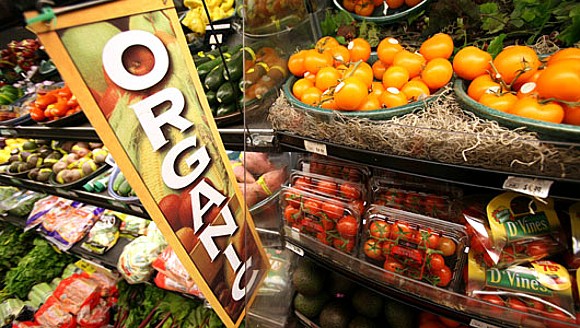2014 Growing Green Awards Winners Honored For Holistic Food Production & Conversation
 June 2, 2014
June 2, 2014  Kyriaki (Sandy) Venetis
Kyriaki (Sandy) Venetis Winners in four categories have been selected for the 2014 Growing Green Awards, sponsored by the National Resources Defense Council (NRDC) in cooperation with the Berkeley Food Institute (BFI).
This is the sixth year the awards have been held, honoring individuals pioneering innovations and education in sustainable food systems, as well as working toward policy changes and grassroots efforts in conservation.
The award categories were in: sustainable livestock production; regional food leadership; pollination protection; and sustainable food and farm education.
Peter Lehner, executive director of the NRDC, talked about the importance of highlighting innovators, including those focusing their efforts on changing the conventional agricultural system that he calls unhealthy, saying, “On conventional farms, crops and fields are doused with chemical pesticides and herbicides, many of which have been linked to cancer and other serious illnesses.”
Lehner talked more about the vicious cycle of chemical use in conventional agriculture, saying chemical fertilizers drain the soil of nutrients, which then requires the use of more chemicals, “leaving the soil dry and lifeless.”
Lehner also discussed the wider environmental impacts, explaining that, “Excess fertilizer washes off into the water supply, creating ‘dead zones’ in the oceans, and enters the atmosphere, where it is a powerful global warming pollutant.”
Other areas of focus that were highlighted by the winners’ efforts were the effects of agricultural chemicals on pollinators like butterflies, and the consequences of chemical fertilizers and the overuse of antibiotics in livestock feed.
The 2014 Growing Green Award winners were:
Sustainable Livestock Producer Award Winner
Will Harris, White Oak Pastures Farm, (Bluffton, GA.)
Will Harris received the award for his organic and holistic approach to reinventing his family farm that his family has owned and operated for five generations. The farm humanely raises grass fed, pasture roaming, antibiotic free livestock including cattle, pigs, sheep, goats, rabbits, turkeys, guinea fowl, and ducks. The farm doesn’t use pesticides or chemical fertilizers.
This approach is a full reversal from the farm’s more conventional industrial methods practiced just over a decade ago. “What saved our farm was returning to the old holistic farming ways, the ways that my great-grandfather used,” said Harris.


